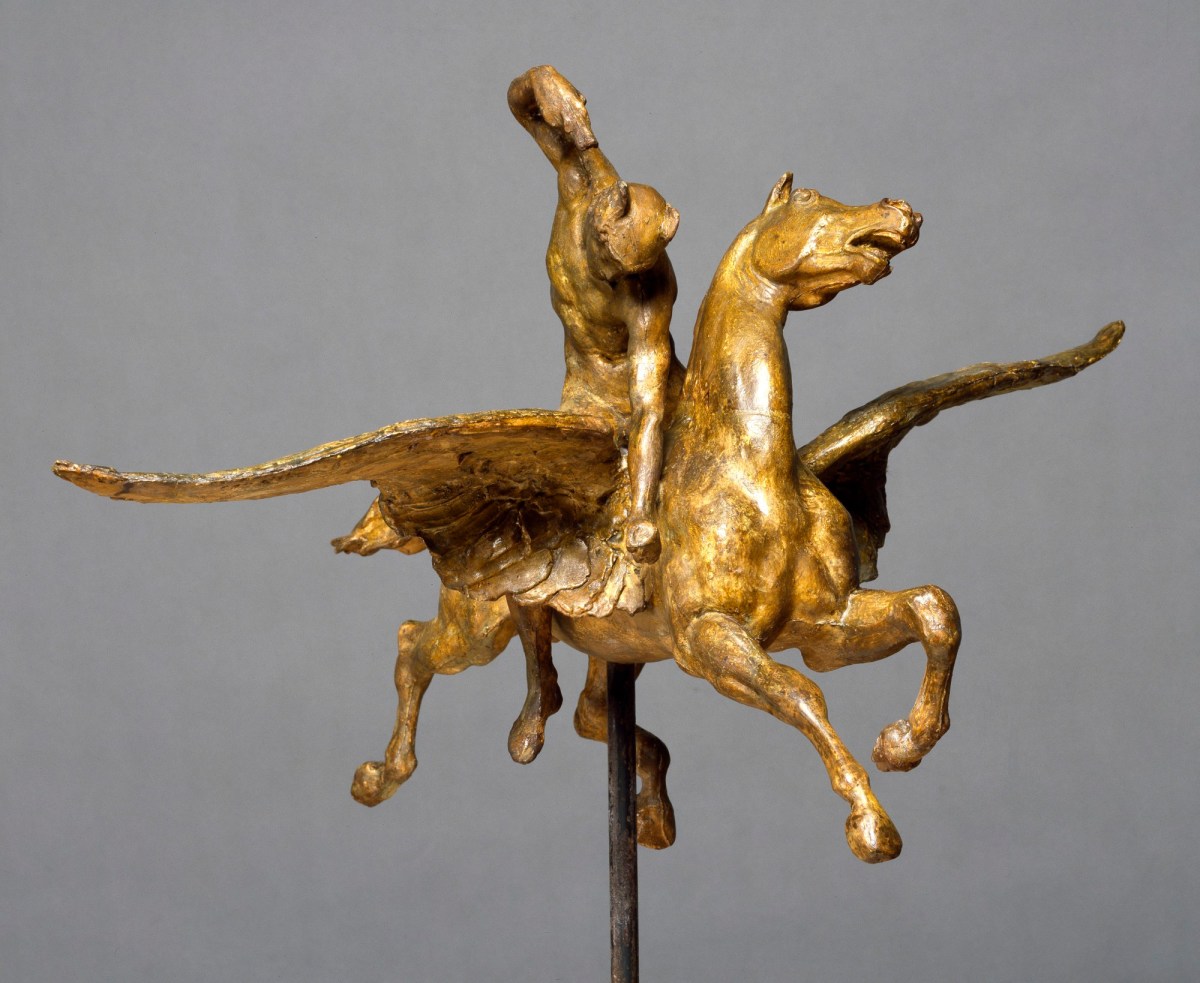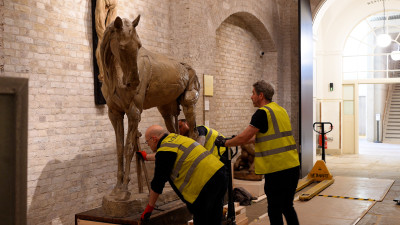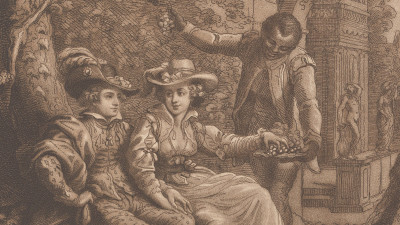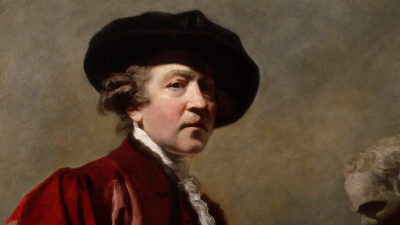
Lord Leighton PRA, Sketch model of Perseus and Pegasus for the painting 'Perseus and Andromeda', ca. 1890.
Plaster. 394 mm x 464 mm x 642 mm. © Photo: Royal Academy of Arts, London. Photographer: Prudence Cuming Associates Limited.
This image is not available to download. To licence this image for commercial purposes, contact our Picture Library at picturelibrary@royalacademy.org.uk
Sketch model of Perseus and Pegasus for the painting 'Perseus and Andromeda', ca. 1890
Lord Leighton PRA (1830 - 1896)
RA Collection: Art
In Greek legend, Queen Cassiopeia angered the sea god Poseidon by claiming that she (or in some versions her daughter Andromeda) was more beautiful than the Nereids. As punishment Poseidon sent a sea monster to attack her land. The only way that the monster could be averted was by chaining Andromeda to a rock in the sea as a sacrifice. Perseus saw the abandoned Andromeda as he travelled by on his winged horse and came to her rescue by slaying the monster.
This plaster study is a model for the figure of Perseus and Pegasus in Leighton's 1891 painting 'Perseus and Andromeda' (Walker Art Gallery, Liverpool). In this painting Leighton depicted the vital moment when Perseus saved the princess.
In an interview in The Studio (1893, p. 7) Leighton explained the role that his small sculptural studies played in the composition of his paintings:
‘“these models are clad with real drapery wetted to increase the effect of its fineness in proportion to the small scale of the folds” and are made only for the sake of ten minutes drawings, the serious study of the drapery being made from the living model or the lay figure. They help also to facilitate the disposition of the grouping, but are done with as soon as the cartoon is ready for tracing.’
Object details
394 mm x 464 mm x 642 mm
Start exploring the RA Collection
- Explore art works, paint-smeared palettes, scribbled letters and more...
- Artists and architects have run the RA for 250 years.
Our Collection is a record of them.



